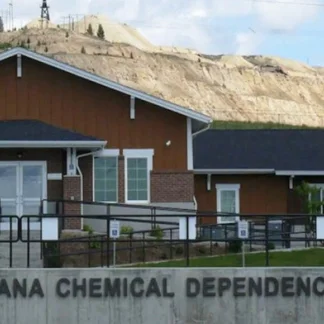AWARE
AWARE is a non-profit rehab located in Butte, Montana. AWARE specializes in the ...
Montana Chemical Dependency Center is a residential alcohol and drug treatment facility for men and women in Butte, Montana. They are a 48 bed facility (16 for men, 16 for women, with an additional 16 for withdrawal management services). They are a private facility in a residential location with modern amenities. MCDC offers a high level of intense care, so they only accept clients on referral from a Montana State Licensed Addiction counselor. Patients are closely monitored to ensure safety and proper care.
For most clients, detox must occur before they can receive treatment. It’s difficult for someone to focus on the treatment process while they are struggling with toxic substances in their system triggering withdrawal symptoms. During detox, clients are overseen by a professional medical system while their body removes these toxins.
Detox is closely monitored by staff, who help clients cope with the difficulties of withdrawal. They provide comfort and support during the process. Close monitoring allows them to make adjustments as needed.
The core of MCDC’s program is its inpatient care program. Clients accepted into the program (and who have completed detox, if required) reside on campus for the duration of treatment, where they are under 24 care and supervision. There is no average length of stay at MCDC.
Treatment is focused on therapeutic techniques that explore the nature of addiction and teaches clients coping skills so they can avoid engaging in addictive behaviors. Treatment plans include individual and group therapy, case management, education opportunities, peer support groups, and self improvement programs.
Clients have access to additional living services, such as transportation and exercise spaces and equipment. Treatment plans include free time for clients to relax and use as they see fit.
All rates are based on a client’s ability to pay, which is determined before admission.
Contact us for more information: (406) 496-5400

Connect with Montana Chemical Dependency Center by calling their admissions team directly.
(406) 496-5400 Website Get DirectionsGroup therapy is any therapeutic work that happens in a group (not one-on-one). There are a number of different group therapy modalities, including support groups, experiential therapy, psycho-education, and more. Group therapy involves treatment as well as processing interaction between group members.
In individual therapy, a patient meets one-on-one with a trained psychologist or counselor. Therapy is a pivotal part of effective substance abuse treatment, as it often covers root causes of addiction, including challenges faced by the patient in their social, family, and work/school life.
Life skills trainings involve all the skills a person must have in order to function successfully in the world. These include time management, career guidance, money management, and effective communication. Truly successful addiction recovery is based on the ability to not only live substance-free, but to thrive. Life skills teaches the practical necessities of functioning in society, which sets clients up for success in life, and therefore sobriety.
In individual therapy, a patient meets one-on-one with a trained psychologist or counselor. Therapy is a pivotal part of effective substance abuse treatment, as it often covers root causes of addiction, including challenges faced by the patient in their social, family, and work/school life.
Life skills trainings involve all the skills a person must have in order to function successfully in the world. These include time management, career guidance, money management, and effective communication. Truly successful addiction recovery is based on the ability to not only live substance-free, but to thrive. Life skills teaches the practical necessities of functioning in society, which sets clients up for success in life, and therefore sobriety.
Life skills trainings involve all the skills a person must have in order to function successfully in the world. These include time management, career guidance, money management, and effective communication. Truly successful addiction recovery is based on the ability to not only live substance-free, but to thrive. Life skills teaches the practical necessities of functioning in society, which sets clients up for success in life, and therefore sobriety.
Western Montana Mental Health Center – Adult is a private rehab located in Butte...
Southwest Montana Community Health Center provides behavioral healthcare as well...
Western Montana Mental Health Center – Psychiatric Services – West Park Street i...